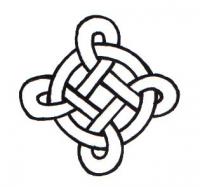Question Straight Wiz trait with a specalty or Split it in two ?
- Cryptic
-
 Topic Author
Topic Author
here a box of stuff and a list of ideas, choose one and make it
she does so, but with magic not science
I am a caffeine heathen; I prefer the waters of the mountain over the juice of the bean. Keep the Dews coming and no one will be hurt.
- Sir Lee
-

First thing, let's remember that there's quite a bit of canon in-universe discussion on whether devisors are some sort of mages, since they routinely do things that should not be possible by imposing their own set of rules on the universe. So, in a sense, every mage is a devisor.
But let's put that aside for a moment and concentrate on the distinction between gadgeteers and devisors. Devisors, as mentioned above, do things that contradict the laws of nature as science understands them. Gadgeteers, OTOH, do things that do not violate natural laws, but "just" take shortcuts in the R&D stage that they can't fully explain, and the production stage is also abnormally quick and easy for them.
So, Artificers. From what I understand, Artificers such as Eldritch don't do anything that's really impossible for other mages -- they just do it easier, and way faster, and with a better quality to the final product. They take shortcuts that they can't fully explain. Sounds familiar?
Yes, I would classify Artificers as the magical equivalent of very high-level Gadgeteers.
What you are describing is more like a mage with a particular talent in making enchanted objects. You might treat it as a peculiar specialization and/or limitation; like Glyph's inability to work with spoken spells. You have a mage who has a hard time manipulating magical energies directly, but compensates by creating magical tools. We have already a canon character who leans a bit on that direction -- Charmer, who tends to prefer using an "arsenal" or pre-prepared charms instead of doing magic directly.
- null0trooper
-

Cryptic wrote: I want to have a decently high level Mage br for a lack of a better description a magical gadhetter (vs Eldritch whom I see as a magical devisor). But I'm not sure how to exspess this on her mid. Her testing went something like this:
here a box of stuff and a list of ideas, choose one and make it
she does so, but with magic not science
Gadgeteers use their talents for design and engineering to make something (which means some won't test positive for the trait if nothing in the pile o' parts matches any projects they have in mind)
Devisors are heavier on the design side and somehow make the parts fit the project they have in mind.
The key question is whether the things that she makes are magical?
1. If so, she's using enchantment. The End.
2. If not, is she turning Thing A into Widget B? That's transfiguration, score a Wiz rating. Next
3. Is she turning material A into other material B? Transmutation, score a Wiz rating. Next.
4. Did the transmutation look like cinematic chemistry? Alchemy, score a Wiz rating. Next.
5. Did she conjure some of the parts out of thin air? Conjuration, score a Wiz rating. Next.
5. Did the pieces move around by themselves to come together?
Magical telekinesis is a thing, score a Wiz rating, BUT if this happened after a completed ritual,
Then it might be summoning or evocation. You're a Wizard, Harry, The End. ( Because another
sentient is doing the work. )
6. Nope. Nothing so animated. Can the thing be reverse engineered and pass the Devise test?
If Yes, add a Gadgeteer trait to the MID
if No, it's a Devise, use D instead of G.
Forum-posted ideas are freely adoptable.
WhatIF Stories: Buy the Book
Discussion Thread
- null0trooper
-

"I know a spell that does X" is still magic X, whether it uses butterflies or flyback converters.
"I know a guy who can get you X" is drug dealing, but that's still a set of business skills.
"Here are the instructions to make your own X": chemical engineering (G)
"I put this apparatus together to distill X from phlogiston": Right. Here's your (D), Buck.
Forum-posted ideas are freely adoptable.
WhatIF Stories: Buy the Book
Discussion Thread
- JG
-

It's a judgment call, really based on story. it's not like it's metrics. If the spell would push the plot forward by massive amount5s or trivialize a challenge, then odds are that spell's going to take a lot out of you.
Another factor of how much essence you pull in and how frast is how you retain. Example: Fey fills an essence pool fast but she RETAINS a lot of it. Caitlin, for instance pulls in essence just as fast but unless she actively focuses on doing something with the energy coming in, she blows it right back out into the world as fast as she pulls it in. Each is a factor of who they are, personal mindsets and personalities and visions of magic. So long as both follow "The rules" then neither is really out there. This means fey will almost always be able to throw bigger spells than caitlin can without a lot of buildup, but it's not like Magic is exactly Caitlin's Go-to ability, is it?
Magic is really "needs of plot" power. And in my experience, the plot is often best served by tremendously high-power "oh shit what did i just do" or low-power abilities that would largely be the equivalent of competition for modern tools.
So the WIZ-Rating is never indicative of specialty. If all you can do is figure out transmutive spells, then that's your WIZ-schtick. Your WIZ-Rating is dependent on how much raw essence energy you can accumulate in X time
- XaltatunOfAcheron
-

An artificer intuitively knows how to make magic artifacts. The key word here is "intuitively." That's the same as a Gadgeteer: she knows how stuff works and how to accomplish a goal with the available materials. It's all "intuition." The higher the rating, the more comprehensive her intuitive understanding is.
I'd call it a Wiz with a specialization.
- Mister D
-

Your Essence Pool skill is how much you can hang on to, for your use.
How successfully you then channel Essence Pool is down to your skill/practise with focusing/channeling your Essence.
The medium's that you then use to receive that Essence is down to the specific effects that you are trying to create, as well as your skill-levels in that medium of expression.
Whether it's an over-powered insta-cast used by Fey, the tea's made by Kayda, the planned patterns that Diamondback uses, the pre-prepared spell slips used by Jadis, or the materials/resulting items created by Eldritch.
Each of them is channelling Essence, but the types of spells, the splashiness of the effects, how much Essence is required for those effects, the range of the triggers, and the duration of the effects, will vary depending upon the personal skill-levels of the casters, as well as their own personal inclinations.
Even Rodin, Cellini, and, Michelangelo, all had to learn their craft from scratch at one point.
Measure Twice
- null0trooper
-

XaltatunOfAcheron wrote: You're talking about an Artificer, as I understand it.
He's also talking about Diamondback, Fey, Circe, and every other wizard you've read about.
XaltatunOfAcheron wrote: An artificer intuitively knows how to make magic artifacts. The key word here is "intuitively."
What I get from JG's stories is that all of that how-to is a set of skills and techniques programmed into the Artificer. It's a soul-stabilized (and fed?) machine that Caitlin drives, just like Erik used to drive his own body.
XaltatunOfAcheron wrote: That's the same as a Gadgeteer: she knows how stuff works and how to accomplish a goal with the available materials. It's all "intuition." The higher the rating, the more comprehensive her intuitive understanding is.
According to the wiki entries, it's more of a specialized precognitive ability that taps into all the possible knowledge developments along a line of enquery instead of what physically happens next. That's why there are NOT supposed to be so many Gadgeteer/Devisor combinations, because a Devisor is doing the scan on a different reality and stabilizing it through an equally specialized warping ability.
Intuition, which all humans have, comes in when the poor sap's mind has to sort through the pile of possibilities to find the mental books that pertain to their goal, or to identify what can be done with what they have on hand. That's where personality (and development disorders) really comes into play into how the techies develop as they build out their skillsets. So it's possible to hand a Gadgeteer 5 the biggest, bestest Workshop toy box to play with, only to be flipped off on their way out the door: because using the intuition or thinking functions needed to perform tasks like that is just that low on their personal priorities.
Loophole's big knack that got nerfed when Grizzly accepted residence was that she has a world-class spatial perception. Hand that over to a literal genius, with the developing psychometry (esper) ability to "read" what she was handling, and you've got someone who can design a working space propulsion system from a preprint in theorhetical physics. (She also seems to have enough perseveration going on that she can't stop thinking through a design process until she gets to the end. Dipping a bit into the autism spectrum isn't unusual for engineers.)
XaltatunOfAcheron wrote: I'd call it a Wiz with a specialization.
The catch for Cryptic's character would be determining whether there is something going on that magic doesn't easily explain, because for an MID, no one cares about specializations that way.
MIDs and ratings are intended expressly for the MCO to know what a mutant might throw at them in a firefight.
For example, Metro's ratings line would likely read: Modified Baseline Human, GSD-Moderate, Gadgeteer-1, WIZ-0, Pistol - Expert, Martial Arts - Wing Chun, basic < All other information Classified > WARNING! Class-1 Cognitohazardous aura < All other information Classified >
Which covers:
* Yes, he looks wierd, but it's not the MGC at fault.
* His knowledge of certain technologies is advanced for 2007 / He packs a cool sidearm.
* He is a finger-waggler.
* He's been trained by experts on pistol
* Self-defense, not so effectively
* It greatly sucks to be around him.
That covers everything an MCO agent needs to know when responding to a call-out.
* His government would rather chew glass than explain his shapeshifting to the MCO.
* Talking to a wall would be more productive anyway. The USDPA can confirm.
* His other ESP stuff are things baselines have been doing for thousands of years. But they could be magic, in which case see: "things baselines have been doing for thousands of years."
Forum-posted ideas are freely adoptable.
WhatIF Stories: Buy the Book
Discussion Thread
- Cryptic
-
 Topic Author
Topic Author
I am a caffeine heathen; I prefer the waters of the mountain over the juice of the bean. Keep the Dews coming and no one will be hurt.
- Hebblejebble
-

What impact do you want this power to have on your story?
If your character takes a box of parts and builds something that conventional engineering says should be impossible, is it important to your plot that this is done via essence-driven magic rather than divising?
We also have Kayda as a cannon example of a mage with gadgeteering and have scenes with her using her gadgeteering to design new spells, rather than making magic-powered machines. This isn't supposed to be the only way that these powers intersect but it does cause me to ask why a character would specialize in magic-machines.
Are they a technomancer trying to bring magic into the modern, industrial, age?
Are they a mage with a non-functional Well, and therefore have to externalize their magic?
Do they idolize a tech-hero and insist on imitating them, regardless of what powers they have?
There's a lot of good potential reasons to focus on magical machines but given its rarity in the WU a reason should probably exist. That reason will at least partially be driven by your plot requirements, and in turn influence the mechanisms of this power set and its MID labelling.
- Kettlekorn
-

- Hebblejebble
-

The idea I was trying to convey is that, to me, applying Gadgeteering to mage-craft would have you trying novel applications of magic in general rather than building physical, but magic powered, gadgets.
Considering that the original question was about the MID classification I feel it may help to clarify what kind of things this character creates. Are they designing new spells and fixing them into enchantments (kinda like Fey's privacy crystal) or building normal gadgets and then completing/improving them magically (more like Roulette's flechette gun)?
- JG
-

- Kristin Darken
-

You could say that her Essence acquisition is similar to that of a rank X wizard trait mutant. You could compare her Well discipline with that of a mage with 'x' experience. But she's not a Wiz... nor is Artificer a subclass of Wiz that other people might spontaneously manifest into.
Doesn't mean you can't write in that direction... just understand that the mutant researcher types are going to both want to dissect you to know how you tick... but be completely unable to tie what they learn into what they know. Because the whole system of contemporary understanding of mutant evolution is based on the modern contemporary manifestation process. Once you're Sidhe, or some other 'echo' from the Sundering or pre-Sundering eras... you're outside the basis of all their assumptions.
Fate guard you and grant you a Light to brighten your Way.
- XaltatunOfAcheron
-

- Kristin Darken
-

A lot of games and fantasy DO use artificer as a generic term for someone who crafts magickal items. Just as many use it as the term for people who craft mechanisms - engines, gear systems, the 'non-magickal' artifacts of the fantasy world. And I'm somewhat inclined toward the latter here myself, with an exception made for the cap-A Artificers literally themselves artifacts of legend capable of making things. I use Artificer in GEO as the archetype which is a magic-user through mastery of the use of magickal objects... they don't make them and they have no magic crafting ability of their own, they're just really good at making use of them (sometimes in ways they were not designed for).
Some people use mage-smith (which I think derives from the Mercedes Lackey naming convention where things are Herald-Mage, Mage-Knight, Mage-Spy, etc)... but that one seems off to me... usually a smith works with the materials in the former part of the name. And that's a bit untrue here... the smith isn't manipulating magick. There's much more two 'making' objects of power. Just as there's more to making objects of power than putting magick into things, which is what I generally consider an 'Enchanter' to do.
I like Arcanist... far fewer uses of it out there for 'any' type of magic user... and its 'actual' meaning is a description of someone who knows the (secret) techniques of manufacturing something. Some fantasy sources use is to describe someone who is a master of an old, or unusual sort of magic in their world. Like the Forgotten Realms, you might be an arcanist for your knowledge of Netherese magick. But it gets used rarely enough that you could use it for this purpose without causing much confusion...
Fate guard you and grant you a Light to brighten your Way.
- null0trooper
-

Kristin Darken wrote: I like Arcanist... far fewer uses of it out there for 'any' type of magic user... and its 'actual' meaning is a description of someone who knows the (secret) techniques of manufacturing something. Some fantasy sources use is to describe someone who is a master of an old, or unusual sort of magic in their world. Like the Forgotten Realms, you might be an arcanist for your knowledge of Netherese magick. But it gets used rarely enough that you could use it for this purpose without causing much confusion...
Arcana is used by Shadowrun (4E) as a logic-based skill governing "the practical applications of a tradition's magical theory and the tapping of arcane potency dormant in various materials". It's used to develop new spells and formulas for magical foci, spirits, etc. This is different to Enchanting (actually harnessing magic into making the goods), similar in a way to science (how X works) being different to engineering (how to make X work for you). However, one doesn't have to have magical talent/gifts/a lit Well/whatever to study why magic works, nor to understand how to make a desired result happen.
Unfortunately, action narrative leans on showing the knowledge of magic, building skill at using it, developing will to use it, obtaining the power needed, and the end-result casting all as One
Forum-posted ideas are freely adoptable.
WhatIF Stories: Buy the Book
Discussion Thread
- Astrodragon
-

The mage-smith concept is a very old concept - it goes back to before 1,000AD, where what a smith did was so valuable and complicated it seemed magical to the uninitiated.
It's a bit of a shame we have an Artificer, which confuses things, as I prefer to use the label mage-artificer for a mage who uses and makes items, either to help with magic development or creation, or to be magical items. It covers all sorts of traditional crafts, metalworking, jewelry, alchemy and so on. While most mages do make some stuff, actual specialists in it are more rare, not everyone has the skill or talent to make things well.
Mage-devisor is a big problem issue, as has already been mentioned. Mage-gageteer is less probematical, although skipping sections is not always a good idea in magic - alchemy, for example, requires a very precise set of steps to be gone through, you dont just dump the bits into a cauldron and set it for 6 hours at gas mark 7...
Mage-engineer is a different matter. It just requires a good understanding and background in tech and engineering, using it to help get better results or help do some things more easily. The reason it isnt more common is the time it takes to learn as well as learning magic, and not everyone has the right mindset to be an engineer. We actually have an example of one in Gen2, Thulia, and Morgana may well end up going that route, she has the prerequisits. The big advantage in knowing more about how the physical universe works is you can deleop spells which work with them more efficiently, or exploit laws most people don't know about.
Although we haven't really shown it, its far more likely for a non-wiz mage to be a craftsman or engineer as well as a mage. Early on, they have little essence, so just cant keep practicing casting like the mutants can. So they get a more rounded education, especially about anything that might enhance their magic or make it more efficient (and use less essence)
I love watching their innocent little faces smiling happily as they trip gaily down the garden path, before finding the pit with the rusty spikes.
- null0trooper
-

Astrodragon wrote: Well, there is a reason Morpheus and I are showing a lot more of how a student mage actually has to learn stuff. Having a WIZ class mutant suddenly know how do do everything affects y sensibilities as an engineer.
The mage-smith concept is a very old concept - it goes back to before 1,000AD, where what a smith did was so valuable and complicated it seemed magical to the uninitiated.
Whether it can be traced through myth and tradition, on the metallurgical side it likely goes back to the Copper Age. On the ceramics side, perhaps six millenia. Hence, why Smithy's (a WhatIF character) family hails from Gretna (and other places before that) and she's been learning her crafts from the time she could swing a hammer or kick a wheel.
Forum-posted ideas are freely adoptable.
WhatIF Stories: Buy the Book
Discussion Thread
- Astrodragon
-

Iron is much harder to work, needs higher temperatures, but most importantly the way its worked makes huge differences to what you end up with. It's magic
I love watching their innocent little faces smiling happily as they trip gaily down the garden path, before finding the pit with the rusty spikes.
- XaltatunOfAcheron
-

Astrodragon wrote: The big difference in the way smiths were looked at seems to be iron. Before that, metals were basically made by easy to refine ores, or a simple mixture like bronze.
Iron is much harder to work, needs higher temperatures, but most importantly the way its worked makes huge differences to what you end up with. It's magic
Bronze is a simple mixture? The proportion of copper to tin for classical era bronzes is critical for useful properties like, say, hardness. Good bronze armor or swords are actually harder than the iron that could be crafted in the early Iron Age. It's just that the supply of tin ran out for reasons I'm not at all clear on, although that contributed to the collapse of Bronze Age civilization around the eastern Mediterranean.
Good points about mage-artificers and mage-engineers. And I'd sort of wondered about the attention you were giving to the actual mage training, although you seem to be ignoring the other two legs of the traditional three-legged stool - divination and discursive meditation.
- Sir Lee
-

- Astrodragon
-

I love watching their innocent little faces smiling happily as they trip gaily down the garden path, before finding the pit with the rusty spikes.
- JG
-

But the core bit's the same, WIZ-Rating is how fast you generate the essence. the rest is a bit more freeform. I imagine largely because every mage in whateley has thus far been very different from the others. Styles, specialties, focus of interest, very few stay similar for very long.
The details of a character's specialization are more character-dependent than Background lore/rules dependent. So if you had a mage who specializes in teleportation tricks, she'd be a WIZ-4 as an example, but would not need a separate rating for something like (in D&D terms) an evoker, transmuter, etc. The wiz rating would just be a 4, without the need to tack on other power classes to explain a rating. At most it would be a trend or mention on an MID as an additional note or known technique. That was my primary point that seems to have been lost in translation.
- null0trooper
-

Astrodragon wrote: I'm not ignoring them, but I am only halfway through term!
Isn't it supposed to be a four-year program (like English), all the way up through the Senior Class Ritual workings?
Forum-posted ideas are freely adoptable.
WhatIF Stories: Buy the Book
Discussion Thread
- Cryptic
-
 Topic Author
Topic Author
Ok, thought abut the question, refined it some, and thought of another thats a more Philsophical one Cait would gut me for for putting in her head.
The safe question is: The reason I was thinking Devisor is it's on Eldritch's listing, so I thought that it was some how tied in with her knack for Enchantments and stuff like that. an Magitech be made devisor/gadgeteer traits? (devisor listed to cover all bases.)
The Philosophical one is: is Cait producing whole new designs wehn she creates her what not, or is she little more then a magical C&C machine running on archived designs when in the zone?
I am a caffeine heathen; I prefer the waters of the mountain over the juice of the bean. Keep the Dews coming and no one will be hurt.
- Hebblejebble
-

We've never seen (and I don't expect to see) any mundane numerical "essence measuring machine" and the testing we've seen so far involves either watching the reactions from custom-built, probably un-calibrated, enchanted test equipment or simply taking at face value what the expert "felt" (remembering that even among skilled mages the ability to sense essence is pretty limited). In Whisper's case Dr. Remus labelled her a WIZ-1 because her demonstration "blur" spell came no-where near taxing her limits, and while he was particularly incompentent I can imaging similar problems being quite frequent (My favorite idea is a testing staff's resident mage not realizing that power ratings scale exponentially rather than linearly and trying to push for the creation of a WIZ-8 rating for a WIZ-4 mutant).
This problem must be maddening for researchers trying to insist on repeatable scientific rigor because as soon as anything atypical happens to how someone uses magic the assessment quickly turns into untestable speculation and guesswork. Plenty of the quirks in magic utilization we've seen already can have a massive impact on how a WIZ interacts with testing equipment (what we measure) without any change to their rate of essence draw (what we want to record).
- XaltatunOfAcheron
-

null0trooper wrote:
Astrodragon wrote: I'm not ignoring them, but I am only halfway through term!
Isn't it supposed to be a four-year program (like English), all the way up through the Senior Class Ritual workings?
While I' m rather obviously not Astrodragon, I do have somewhat of a background in both New Age magic and classical ritual magic as it has been practiced in the Western Tradition. A standard (if there is such a thing) course starts with four elements: a simple banishing ritual like the LBRP (Lesser Banishing Ritual of the Pentagram) or the SOP (Sphere of Protection), a divination technique (Tarot, Astrology, Geomamcy, runes, ogham, etc.), a meditation technique which is almost always a variation on Discursive Meditation, and an absolute requirement to maintain a journal. This is in the FIRST LESSON, which may take the student several months to master. Other techniques, like prayer, are optional.
That's why I asked. If you want to know whether a proposed working is wise, do a divination. If you don't know how to do a divination, you're running in a fog without lights.
I would have expected these things to be dealt with early in the first weeks, not shoved off to a later class.
- Hebblejebble
-

In regards to your 'safe' question: Whether a thing is a devise, enchantment or Magitech is probably just based on what the magic expert says during testing. The test for if your invention is a gadget or a devise is whether or not a mundane engineer can replicate it, and if it's part magical they can't, so a mundane tester is just going to try and label you a devisor. If a magic-sensitive tester examines it and says it's magical then the mundane staff can only really take their word for whether it's oddly appearing, but conventional, enchantment or weird-tech-hybrid thing. Considering the ongoing in-universe debate on whether devising is actually specialized magic I can imaging some fun in the scene depicting this.
- Malady
-

- Astrodragon
-

XaltatunOfAcheron wrote:
null0trooper wrote:
Astrodragon wrote: I'm not ignoring them, but I am only halfway through term!
Isn't it supposed to be a four-year program (like English), all the way up through the Senior Class Ritual workings?
While I' m rather obviously not Astrodragon, I do have somewhat of a background in both New Age magic and classical ritual magic as it has been practiced in the Western Tradition. A standard (if there is such a thing) course starts with four elements: a simple banishing ritual like the LBRP (Lesser Banishing Ritual of the Pentagram) or the SOP (Sphere of Protection), a divination technique (Tarot, Astrology, Geomamcy, runes, ogham, etc.), a meditation technique which is almost always a variation on Discursive Meditation, and an absolute requirement to maintain a journal. This is in the FIRST LESSON, which may take the student several months to master. Other techniques, like prayer, are optional.
That's why I asked. If you want to know whether a proposed working is wise, do a divination. If you don't know how to do a divination, you're running in a fog without lights.
I would have expected these things to be dealt with early in the first weeks, not shoved off to a later class.
Basically because magic in the Whateley universe is dangerous. especially when you have teenagers, some of who sorta-know how to cast spells already.
Note that the initial teaching has had an emphasis on safety, and also on basic stuff to keep them occupied (and reduce the number of hobgoblin incidents).
And the first thing they were taught is indeed meditation.
Also they have to try and keep the kids interested, or they go off and try silly stuff (like summoning demons
The other (in-story) reason for quietly ignoring divination is the same reason we are trying to pretent predictors aren't here
A multi-year magic course for non-WIZ students would be different.
I love watching their innocent little faces smiling happily as they trip gaily down the garden path, before finding the pit with the rusty spikes.
- Kristin Darken
-

Malady wrote: Wasn't "Number of Light Spells that can be maintained at once", used to measure Wiz-rating?
Yes, there is a super simple light spell that uses a consistent amount of Essence for every mage that casts it...the output in lumens and Essence drain are SO consistent from cast to cast that it is theorized that it was actually designed for the purpose of measurement in this fashion, as opposed to being used for providing a light source (and there are much better 'flashlight' spells available). Also, the tap on the mage's Well sustains until stopped (or Essence is no longer available). This means that the number of light spells a wiz mutant can sustain while keeping a 'constant' level of Essence in the Well can be used as a viable measurement for Essence acquisition from the environment through natural means.
Remember though, that mages are historically their own tradition. While mutant powers theorists are defining mage traits and the evolutionary processes involved in mutants acquiring magickal ability... that doesn't mean that the old mages (who functioned in orders or in master-apprentice teaching systems) are willing to 'share' what they know.
Fate guard you and grant you a Light to brighten your Way.
- Malady
-

- Astrodragon
-

WIZ is the indicator of how fast you can refill your well.
So all you need is spell of device that uses the same amount of essence each time, and work out how long it takes to be able to cast it again.
A device (like the one Grines used on Morgana) is even easier, as they can be calibrated against each other to allow for differences in them.
Mind, this isnt actually measuring the WIZ level so much as the effective WIZ level, but this can be accounted for. After all the WIZ rating isnt required to be terribly precise to 14 decimal places, its just an indicator so they can put something on the MID.
I love watching their innocent little faces smiling happily as they trip gaily down the garden path, before finding the pit with the rusty spikes.
- Kristin Darken
-

Remember, the actual ranks have to do with evolutionary traits. The way the biological and metabiological body has developed such that it is capable of attracting Essence to the mage's Well is what 'actually' determines the Wiz rank. It just happens that certain evolutionary markers tend to yield specific levels of advantage. Just has having a combination of titanium seeded bone structure and hyperdensity musculature in combination are two of the most common traits that identify an Exemplar three... and while both traits allow for superhuman capability, its only 'barely' so and even some world class athletes might occasionally peak or set records in the ranges of ability you'd use to 'measure' them (though they wouldn't do it all the time and with minimal training, which the Ex-3 would).
So... yes... you could be fairly accurate in saying that a mutant mage who can sustain 13 standard light spells while maintaining their Well levels is a certain rank of Wiz mutant... that's a 'shortcut' measurement and may result in mis-identification. They may actually be a higher ranked mage with an unusually low ability to 'multitask' light spells. They may have an inherent strength or weakness with light, which disrupts the otherwise consistent spell. They have have an exceptionally leaky Well and find it almost impossible to even keep enough Essence in their Well to keep it lit, let alone to sustain spells. And so on. Lots of ways to skew the results of such a simple measurement.
Besides, the testers aren't doing this to measure how much Essence you have. It's not an RPG character sheet that they're trying to standardize. They're trying to identify common evolutionary traits and how they work to produce certain powers (or even operate within our scientific laws).
Fate guard you and grant you a Light to brighten your Way.
- Astrodragon
-

Yes, they need to allow for all the other bits and peices, and its a bit worse as a lot of these will change with time as the mage does.
Whateley is probably the most accurate, as they see so many WIZ class kids, they are familiar with all the aspects and can make a good attempt at allowing for everything and getting a reasonable result.
Even so, there will be cases where its not so accurate.
But I don't to be honest see that as worrying them so much, its only an estimate that allows them to put something on the MID card and to have a reasonable first cut at knowing what the mutant can do.
I love watching their innocent little faces smiling happily as they trip gaily down the garden path, before finding the pit with the rusty spikes.
- null0trooper
-

Kristin Darken wrote: Besides, the testers aren't doing this to measure how much Essence you have. It's not an RPG character sheet that they're trying to standardize. They're trying to identify common evolutionary traits and how they work to produce certain powers (or even operate within our scientific laws).
An RPG ruleset can be used to make an estimate of how much damage a magician can be expected to cause, either sustained or peak output or total for the day, as long as a comparable estimate can be made for a brick. Or you can ball-park it by comparing to a known, standard brick.
I suggest that, because for an MID, the primary goal is for the MCO to know what to expect in an emergent situation. A wizard could have an extension cord running over the backyard fence to Dr. Fate's tower, but they are not carrying all that juice with them on the way to Target.
Unless they're Mordru, in which case the problem at hand scales significantly.
* Practically everyone learns some version of magic missile: so on average, is Mugwump's magic missile packing the damage capability of a .22 match round or is it closer to that of a warper throwing an osmium ball at hypervelocity? How about his fireball?
* Next, what does it take to make him bleed? It's very helpful to know in advance whether 9mm rounds do the job or if it's time to bring on the gatling guns. Techies have PFGs, mages have shield spells, the wise use both.
* AFTER that comes the frantic search for dodges, caveats, and vulnerabilities.
Trying to account for lead time, breadth of knowledge, access to materials, specialties, etc. is a way to go crazy. Given lead time and access, Phase or Generator could cast a crippling hex fueled by baseline essence draw/baseline theurgy and a metric Buttload O' Precedence. (From what's been published, that could be one of Ayla's many contingency plans.)
Forum-posted ideas are freely adoptable.
WhatIF Stories: Buy the Book
Discussion Thread
- Mister D
-

XaltatunOfAcheron wrote:
Astrodragon wrote: The big difference in the way smiths were looked at seems to be iron. Before that, metals were basically made by easy to refine ores, or a simple mixture like bronze.
Iron is much harder to work, needs higher temperatures, but most importantly the way its worked makes huge differences to what you end up with. It's magic
Bronze is a simple mixture? The proportion of copper to tin for classical era bronzes is critical for useful properties like, say, hardness. Good bronze armor or swords are actually harder than the iron that could be crafted in the early Iron Age. It's just that the supply of tin ran out for reasons I'm not at all clear on, although that contributed to the collapse of Bronze Age civilization around the eastern Mediterranean.
Good points about mage-artificers and mage-engineers. And I'd sort of wondered about the attention you were giving to the actual mage training, although you seem to be ignoring the other two legs of the traditional three-legged stool - divination and discursive meditation.
The main source of the tin for bronze making was Cornwall, probably via the coastal trade routes along the north African coast, through the straits of Gibralta, and following the coast of the Iberian peninsula to Brittany and Cornwall.
There's archeological evidence of the Phoenecians using this route.
Also, there are a lot of different recipes for bronze, including one flavour that uses aluminium. Chewy properties.
The meditation exercises crop up in a few stories, involving Fey, and especially the conversations between Circe and Ayla.
Measure Twice
- JG
-

without preparation, discipline, practice and judicious use of masking spells and techniques.
- null0trooper
-

JG wrote: It is, however, incredibly unlikely that someone will ever appear to be less powerful than they really are...
without preparation, discipline, practice and judicious use of masking spells and techniques.
If you ain't cheating, you ain't even trying.
Forum-posted ideas are freely adoptable.
WhatIF Stories: Buy the Book
Discussion Thread
- Astrodragon
-

All it tells you is how fast they can recharge their well, nothing about skills, spells, damage level, anything you might really want to know if you have to fight them.
I love watching their innocent little faces smiling happily as they trip gaily down the garden path, before finding the pit with the rusty spikes.
- null0trooper
-

I don't recall any references to updating MID contents between freshman and senior years. However, given their corporate and NGO funding, I'd lay odds that the MCO has people working as analysts who do nothing but sit on news feeds and any other traffic they can intercept: to see that the rest of the data iceberg (One the bearer needs a special reader to access, and oops, the stakeholders don't have to bend and spread for a FOIA) updated.
Enough combat finals/mutant deathmatches, and even Jadis Diabolik ends up profiled well enough to know what she leads with and what her backup options are.
The listings may not be 100% accurate, but human nature is such that the spells that have worked before are going to be the wizkid's goto spells. Unusual omissions or noted failures point to their weaknesses (or to their usual teammates' weaknesses: smart people don't use spells that screw their buddies over). Odd substitutions may hint at an obscure tradition or to an allergy.
For example, if the death matches go four years without "Metro" ever pulling out a spell slip unlike half his age group: the simplest explanation is that he cannot use them effectively. Otherwise, simple things like fire hoses will screw over the spell slippers, the card dealers, and anyone who has difficulty concentrating under pressure. (What's the legality of KoP bringing their own tanker trucks?) If "The Green Fairy Chick" leads with a hallucinogenic pixie three times out of four: that's a tactic she relies on. If it works more than a few times on Regens, it's a magical hallucinogen, so pop the little nuisances as close to her allies as possible.
And so forth... although the WIZ rating itself is a good reason to bump that menu holder to the top of the takeout list.
Forum-posted ideas are freely adoptable.
WhatIF Stories: Buy the Book
Discussion Thread
- Mister D
-

null0trooper wrote: IAnd so forth... although the WIZ rating itself is a good reason to bump that menu holder to the top of the takeout list.
This is advice that always is true.
Take out the geezer with the pointy hat first.
Measure Twice
- Anne
-

If the guy/gal tossing around lightning bolts misses you the first round, make sure you don't miss him when you are putting lead down range!Mister D wrote:
null0trooper wrote: IAnd so forth... although the WIZ rating itself is a good reason to bump that menu holder to the top of the takeout list.
This is advice that always is true.
Take out the geezer with the pointy hat first.
Adopt my story: here
Nowhereville discussion
- Hebblejebble
-

IIRC in one of JG's stories (Call the Thunder?) Caitlin mentions that they mutants get re-tested at some point after reaching physical adulthood (I suspect either 18 or 21 y.o.) because developing adolescent bodies don't necessarily express their full mutant traits (eg: growing bones are softer than adult 'set' ones).null0trooper wrote: I don't recall any references to updating MID contents between freshman and senior years.
- Sir Lee
-

It follows that the student MIDs -- where those temporary codenames are printed -- must necessarily be temporary too.
A bit of thought leads to the induction that the cutoff is probably not graduation but adulthood; similar to juvenile records, juvenile MIDs are likely protected. It's just that most students turn eighteen during their senior year.
- Cryptic
-
 Topic Author
Topic Author
That's the standard I'm using.
I am a caffeine heathen; I prefer the waters of the mountain over the juice of the bean. Keep the Dews coming and no one will be hurt.
- Cryptic
-
 Topic Author
Topic Author
Sir Lee wrote: It follows that the student MIDs -- where those temporary codenames are printed -- must necessarily be temporary too.
A bit of thought leads to the induction that the cutoff is probably not graduation but adulthood; similar to juvenile records, juvenile MIDs are likely protected. It's just that most students turn eighteen during their senior year.
They say they are sealed, but are they really?
Strikes me that the earlier MIDs might be the most accurate on record. Look at Jade's, what stops others from tweaking theirs? It's not like a... honestly at the moment I can't think of a leicenswe or id that requires a retest every time it's renewed.
I am a caffeine heathen; I prefer the waters of the mountain over the juice of the bean. Keep the Dews coming and no one will be hurt.
- Sir Lee
-

